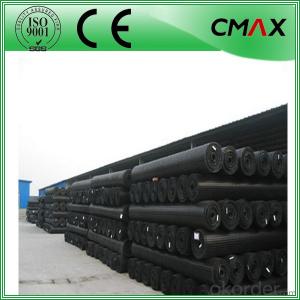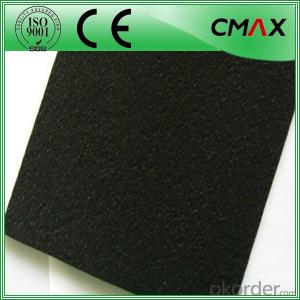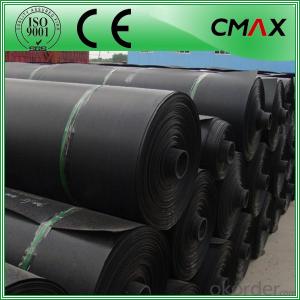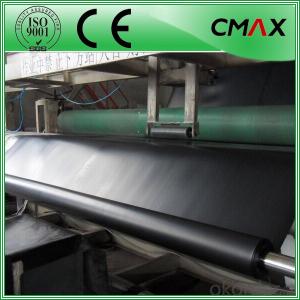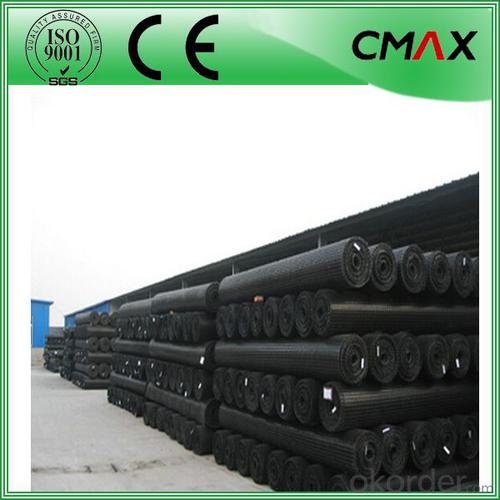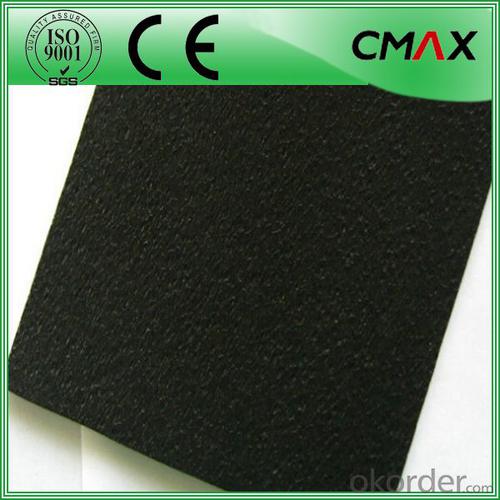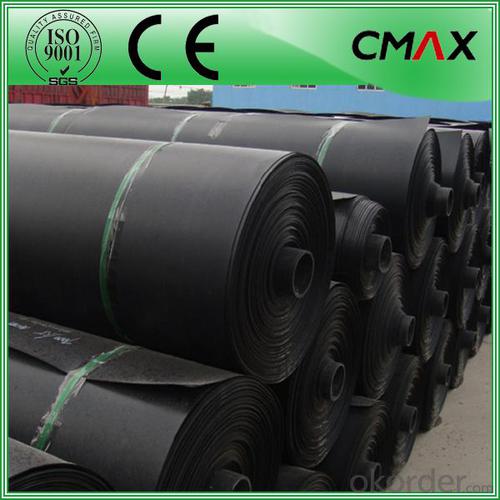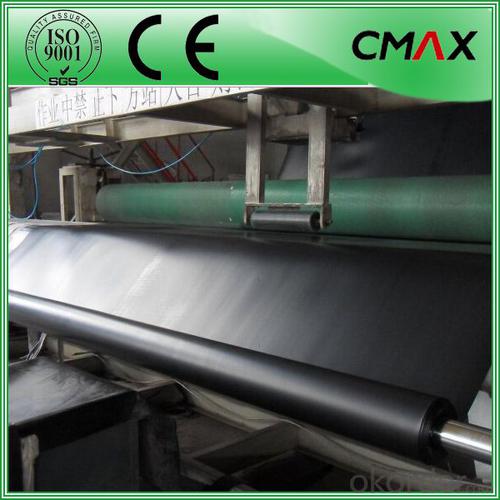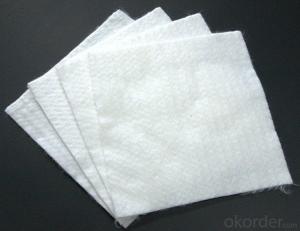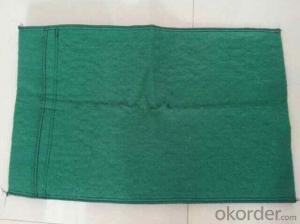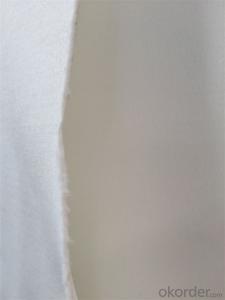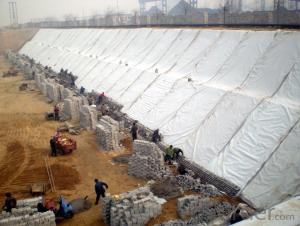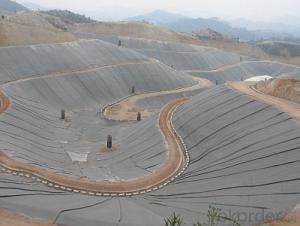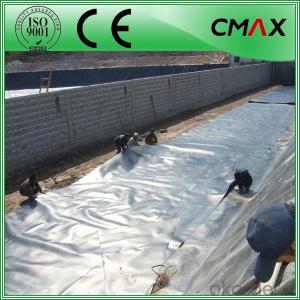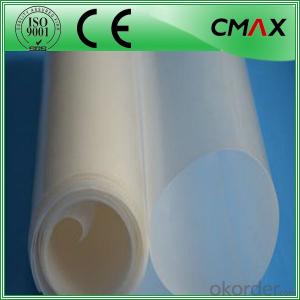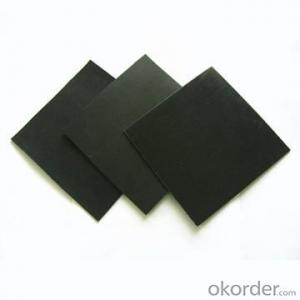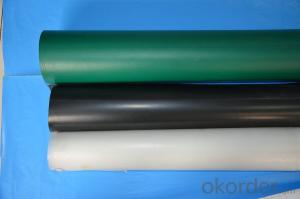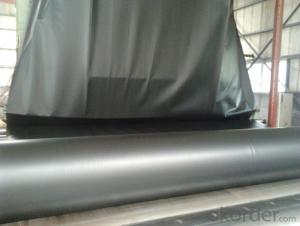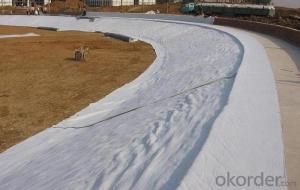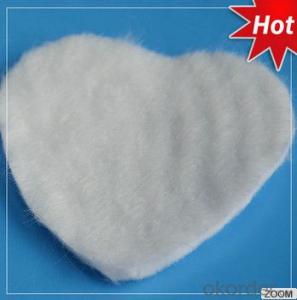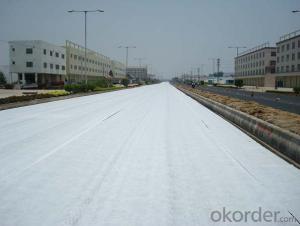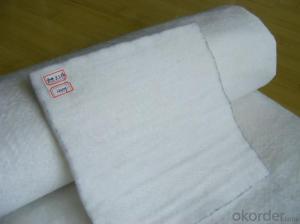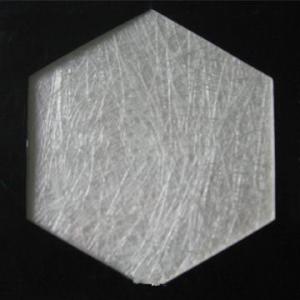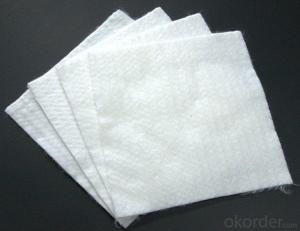Feutre Géotextile Bassin - Plastic Pond Liner for Fish/Geomembrane Price/Membrane
- Loading Port:
- Tianjin
- Payment Terms:
- TT OR LC
- Min Order Qty:
- 100 roll
- Supply Capability:
- 20000 roll/month
OKorder Service Pledge
OKorder Financial Service
You Might Also Like
Plastic Pond Liner for Fish/Geomembrane Price/Membrane
Geomembrane Features:
Good mechanical properties, high tear strength, deformation and adaptable, puncture resistance, anti-aging, anti-ultraviolet-resistant, Anti oil and salt, pH, anti-corrosion, high temperature-resistant, non-toxic, long service life. water, drainage, seepage, the good effect of moisture, width, thickness of the full range of specifications and low cost, simple construction.
Specifications and Technical datas:
| Thickness | 0.15mm - 4.0mm |
| width | Within 8 m |
| length | 50-100m/roll (at request) |
| Material | HDPE,( LDPE, LLDPE, PVC, EVA ) |
| Color | Black , white , grey |
| Optional surface | Textued(one or two side) or smooth surface |
| Manufacturer | The biggest geomembrane liner manufacturer/factory in China for many years |
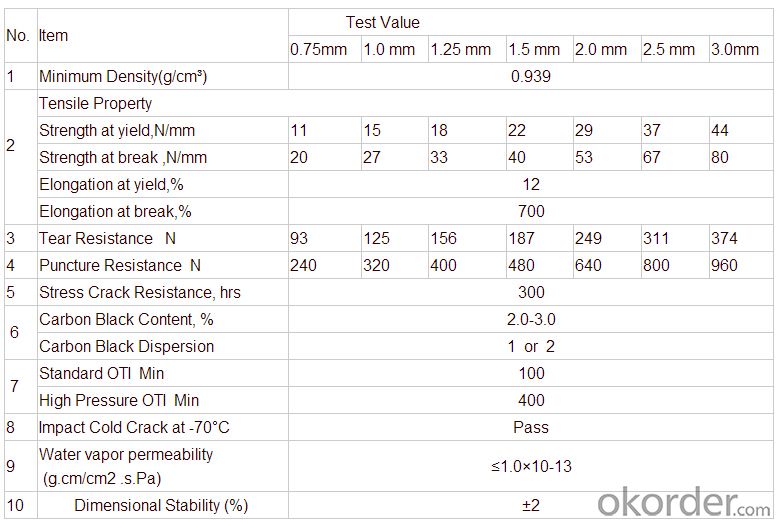
Details of our products:
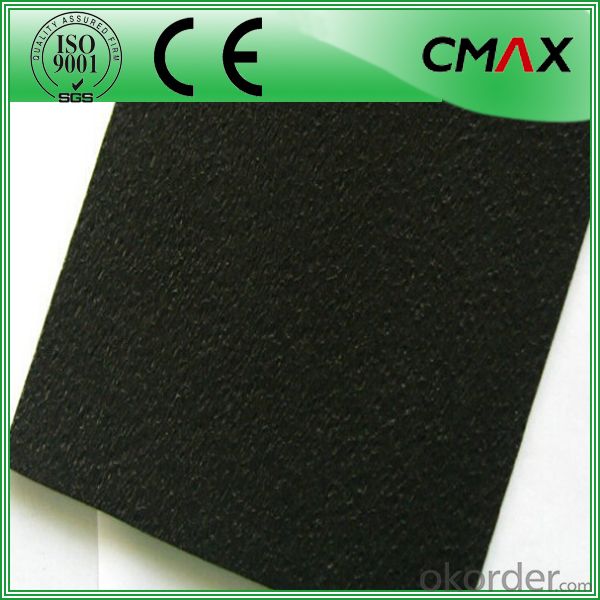
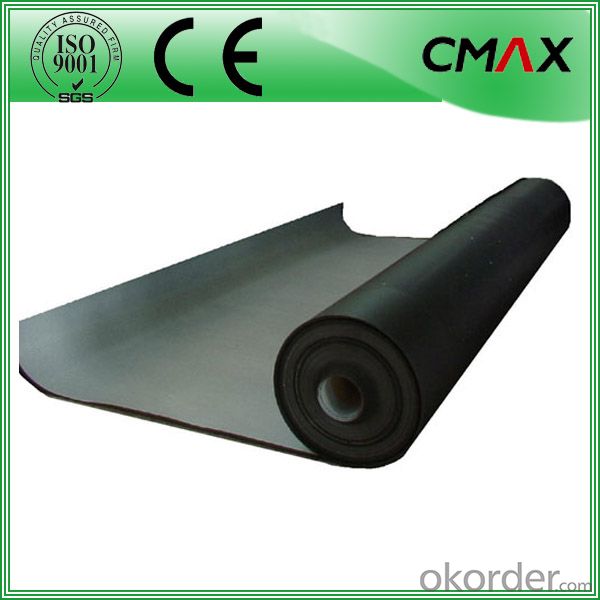
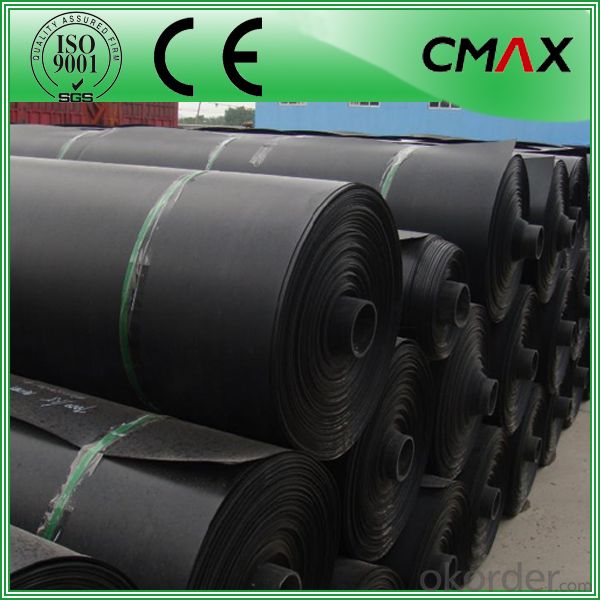
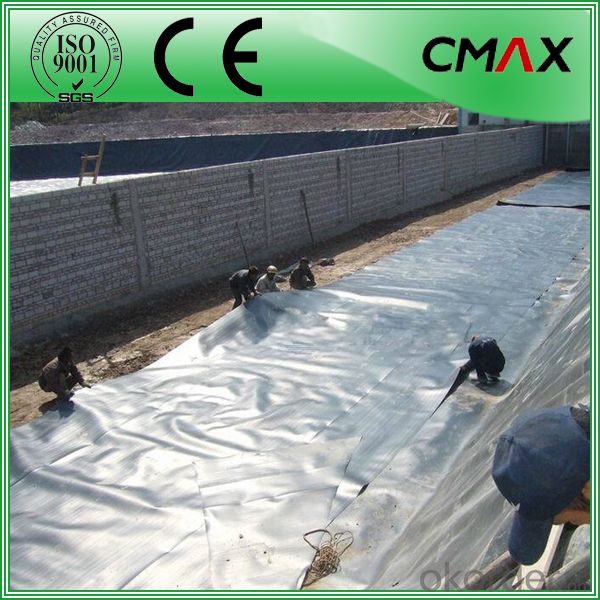
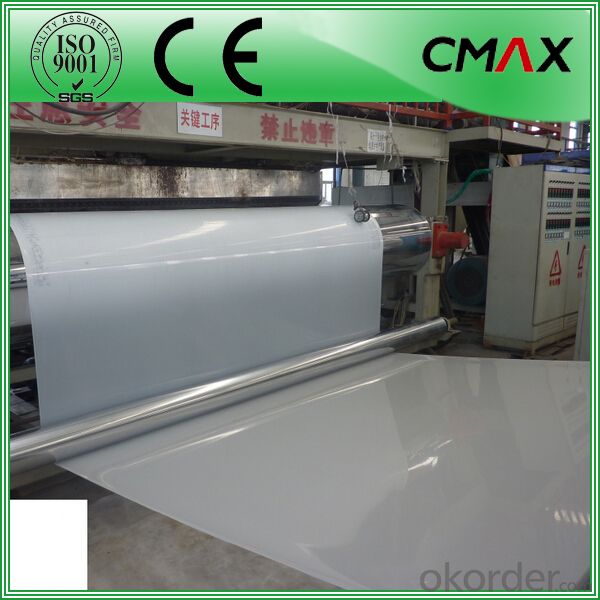
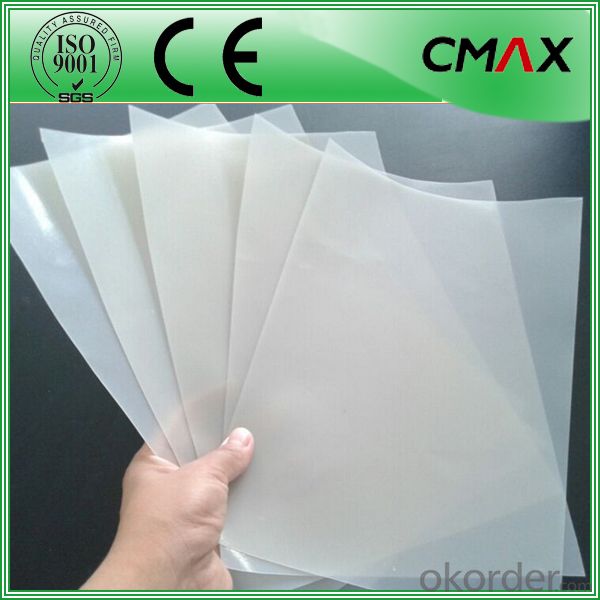
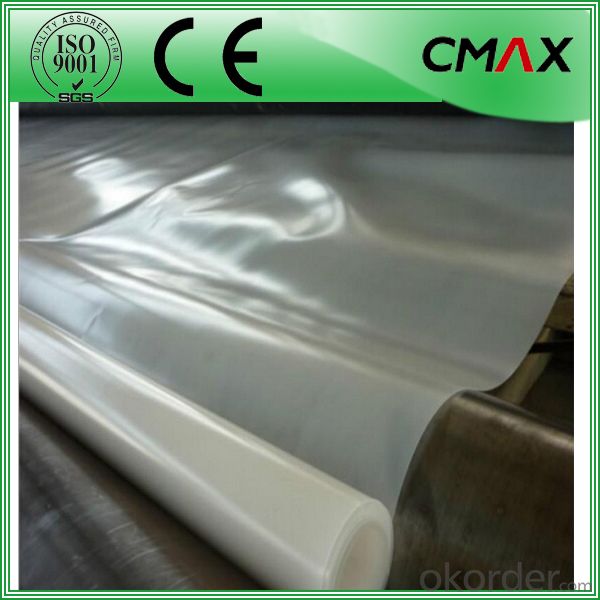
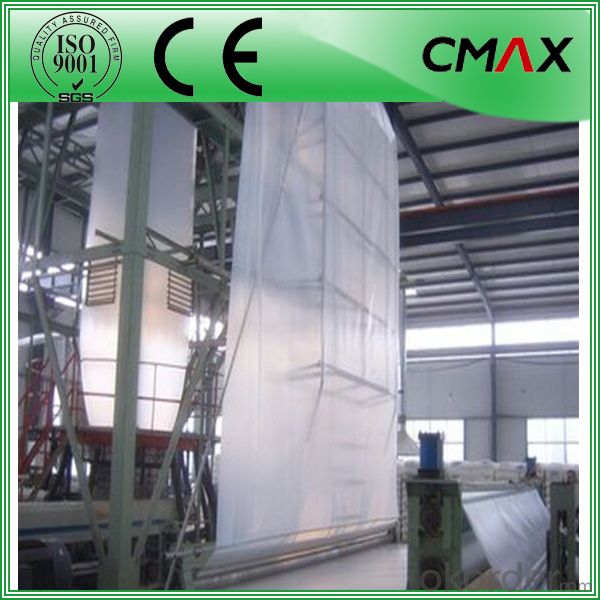
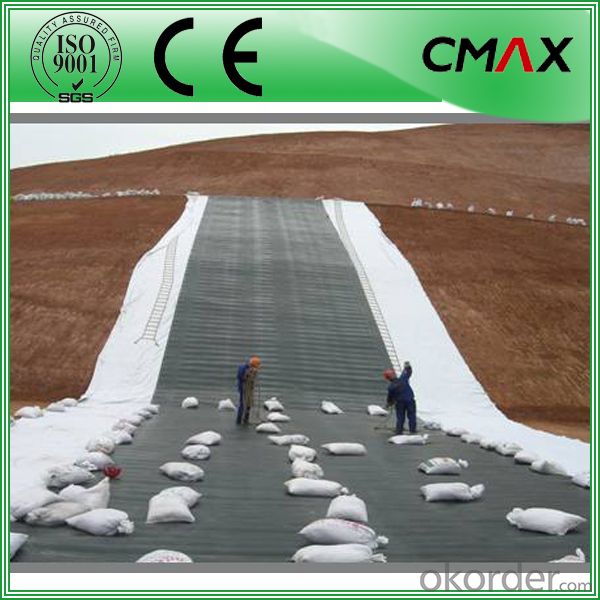
Applications:
1) Environmental protection, sanitation (such as solid waste landfills, sewage treatment plants, power plants Chi-conditioning, industrial, hospital solid waste, etc.) .
2) Water (such as rivers, lakes and reservoirs of the anti-dam, plugging, reinforcement of the canal seepage, the vertical wall of the heart, slope protection, etc.).
3) Municipal Engineering (subway, on the ground floor of the building, planted roof, the roof garden of anti-seepage, sewage pipes lining, etc.).
4) Landscape (man-made lake, river, reservoir, golf courses reservoirs of the substrate, slope protection, green lawn of the waterproof moisture, etc.).
5) Petrochemical (chemical plants, oil refineries, gas storage tanks of the anti-chemical reaction tanks, sedimentation tanks of the lining, etc.).
6) Mining (washing and pool heap leaching, the ash-field, dissolved, precipitation, the yard, the tailings seepage substrates, etc.) .
Packing and shipping:
1. The outer package: black or white woven geotextile.or we can make the package as your requst.
2. Different tgram/ roll size for different qty in the same containers.
3. Roll size: 3.95m*200 for container
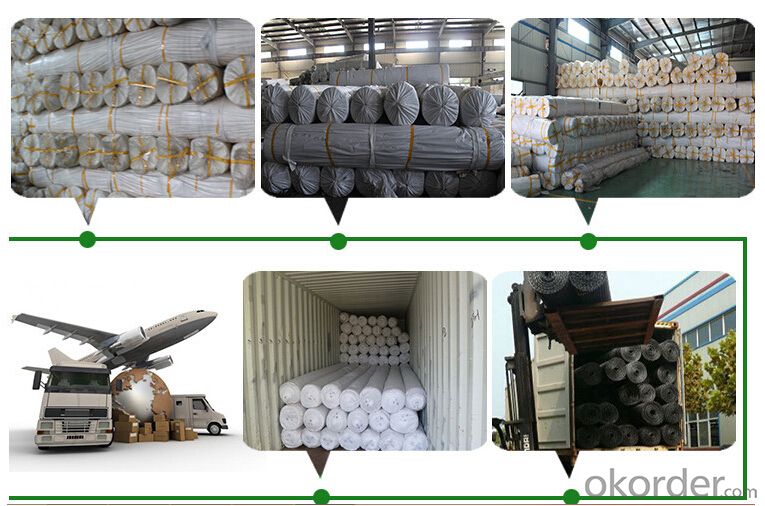
FAQ:
Q1: What is your minimum order quantity?
A:The minimum order quantity is 5000 ,but it is negotiable.
Q2:What is your payment terms?
A: T/T,Western Union,Paypal,L/C...
HDPE Geomembrane Price
Q3:What is your delivery time?
A:Production time usually costs 2-20 days.
Waiting to cooperate with you!
- Q: A creek next to our property is eating away the embankment and an engineer suggested using the sand in the creek bed.. wrapping it up in geotextile fabric in the form of a burrito but he did mnot mention how to fasten them shut..any ideas or experience with erosion control out there?
- Get some tie wire or baling wire. It's a soft wire used for tying reinforcing steel together or for baling straw. You could also use plastic cable ties.
- Q: How are geotextiles used in road construction?
- Geotextiles are used in road construction to enhance the structural integrity and lifespan of the road. They are placed between the subgrade and the base course to prevent soil erosion, improve drainage, and provide separation and filtration. Geotextiles also help to distribute loads and reduce cracking and rutting in the road surface.
- Q: Geotextile is what is the role to play with what?
- Geotextile is the main role of reinforcement, filter, mostly used in landfills, water conservancy projects, composite geotextile or composite geomembrane (a cloth a film, two cloth a film, multi-cloth film) with anti Infiltration of the role, this time there is the role of geotextile protective film
- Q: How are geotextiles used in civil engineering?
- Geotextiles are extensively used in civil engineering as a versatile material for various applications. They are commonly employed for soil stabilization, erosion control, drainage management, and reinforcement purposes. Geotextiles can be installed to prevent soil erosion on slopes, act as a separation barrier between different soil layers, provide filtration in drainage systems, and enhance the strength of embankments or roads. Their permeable nature allows for water and gas flow while effectively retaining soil particles, making them an essential component in many civil engineering projects.
- Q: Today someone told me about a boyfriend, said to be geotextile. I wonder, geotextile cloth is what cloth? Is there there? Why is it used More
- Geotextile geotextile, also known as geotextile, it is made of synthetic fibers through the needle or woven from the permeability of geosynthetics. Finished cloth for the cloth, the general width of 4-6 meters, the length of 50-100 meters. Geotextile is divided into a woven geotextile and non-woven geotextile. Geotextile has excellent filtration, isolation, reinforcement protection, high tensile strength, good permeability, high temperature, anti-freeze, anti-aging, corrosion resistance. Divided into: non-woven geotextile, a textile geotextile (reinforced geotextile), warp knitted geotextile with demand can contact: Fang Lingyan Tel:
- Q: Geotextile GB and Dahua What is the difference between looking at almost ah
- GB is the current national industry standards, Dahua is from the raw materials to distinguish, Huazhi geotextile material manufacturers
- Q: Geotextile tensile strength of the maximum load is generally how much
- Hello, this depends on the geotextile specifications, different specifications, it is the largest pull up the load is not the same. Huazhi geotextile material manufacturers can not answer for you to ask me
- Q: How do geotextiles help with soil stabilization in construction sites?
- Geotextiles help with soil stabilization in construction sites by reducing soil erosion, improving soil structure, and enhancing the overall stability of the construction area. They are placed beneath the soil surface to prevent the migration of fine particles, distribute loads evenly, and provide reinforcement to the soil. This helps in controlling soil movement, increasing the bearing capacity of the ground, and ultimately ensuring a more secure and durable construction foundation.
- Q: What are the different guidelines for geotextile installation in erosion control projects?
- The guidelines for geotextile installation in erosion control projects may vary depending on the specific project and site conditions. However, some common guidelines include conducting a thorough site assessment, properly preparing the subgrade, ensuring proper overlap and seam strength of geotextile materials, adequately anchoring the geotextile to prevent movement, and regularly inspecting and maintaining the geotextile for any damages or clogging. Additionally, following manufacturer recommendations and consulting with experienced professionals can also provide valuable insights for successful geotextile installation in erosion control projects.
- Q: what are Smart Geotextiles?
- These are textiles which use nano-technology to behave in certain ways under specific conditions. For example, a textile used for a tent can be white when the surrounding air is hot, but will turn black or dark when it's cold so it can absorb heat.
Send your message to us
Feutre Géotextile Bassin - Plastic Pond Liner for Fish/Geomembrane Price/Membrane
- Loading Port:
- Tianjin
- Payment Terms:
- TT OR LC
- Min Order Qty:
- 100 roll
- Supply Capability:
- 20000 roll/month
OKorder Service Pledge
OKorder Financial Service
Similar products
Hot products
Hot Searches
Related keywords
